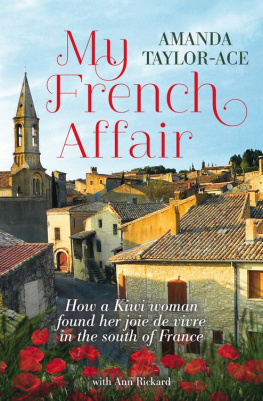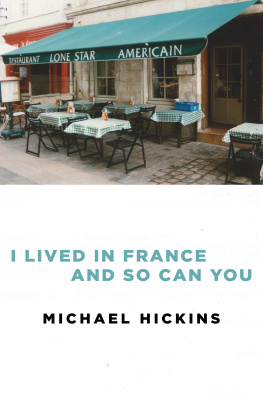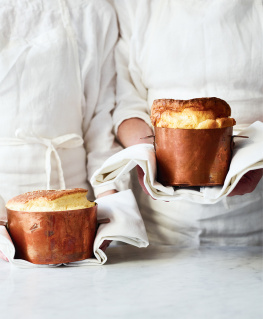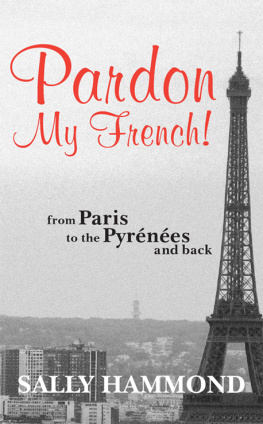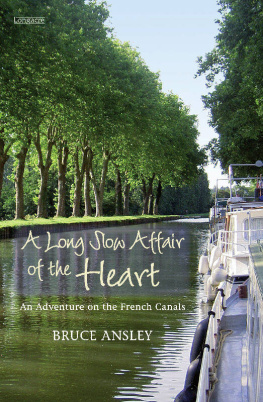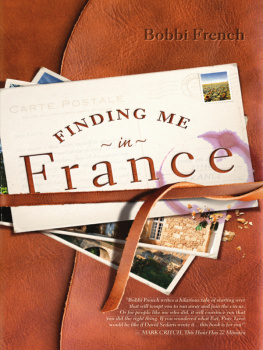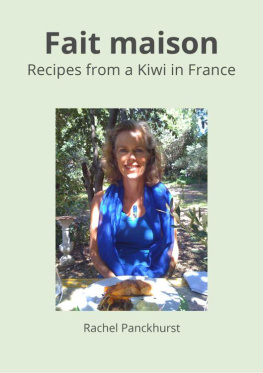Amanda Taylor-Aces philosophy is joie de vivre unlimited living life with unlimited joy. So when her 14-year-old son fell in with a bad crowd and her life in Auckland needed a shake-up, she packed their bags and took him to France for a year. My French Affair is the story of how and why she decided to stay.
Not content with simply living in France, she decided to renovate two eighteenth-century houses and convert them into guest accommodation. In My French Affair, Amanda describes the trials and tribulations of working with French tradesmen (both good and bad), getting to know the local villagers, hosting guests from around the world, teaching guests to cook in Maison de Matressess kitchen, and her joy in new and old friendships and the daily delights of life in France.
To Judy, my bestest buddy, and my children Samantha and Piers, all of whom seem to love me unconditionally.
I t all started with a bout of arm-wrestling with Ringo. John and Paul were there. George too. Watching us and laughing in disbelief as I tried to force Ringos arm down onto the table. Theyd never met a girl who could arm-wrestle. And Id never met four fresh-faced lads on the brink of becoming a global phenomenon.
It was 1964, a private party with the Beatles in a hotel suite in Auckland. I was in my late teens, engaged to a local plumber, having been raised, as most of us in New Zealand were at the time, in a gentle and unremarkable manner, insulated from anything worldly by our geography and limited methods of communication.
Apart from the plumber, digging for pipi at the beach and riding my horse in the paddocks of Aucklands North Shore were my two great passions. And arm-wrestling with my brother.
Partying with international rock stars had never entered my teenage thoughts. Actually, I barely knew who the Beatles were then not many New Zealanders did. The world had only just started coming into our lounges via hazy black-and-white pictures on television, and even they went off at nine at night when the channels closed down.
Fate had raised its fickle finger and pointed it at me that June day in 1964, changing the course of my life. Id been walking back from training college where I was studying teaching. I had on a new bright red coat with large covered buttons, black leather gloves and a perky peaked black cap with a bow on the front. My blonde hair fell out from the cap in a long fringe and little wisps floated down my back. I remember feeling particularly pretty. I came across a crowd of excited girls outside the Royal Hotel. Not much happened in Auckland then, certainly nothing to bring out a crowd of breathless young women on the verge of hysteria. I recognised one of the girls, the sister of a friend.
Whats going on? I asked when I could get her to stand still.
The Beatles are staying in this hotel; were trying to get in to meet them, she panted.
How are you going to do that? My curiosity was aroused. Id always loved a challenge.
My cousin is the head of security but hes inside. I cant get to him. We have to wait here.
To me it seemed simple. Knock on the door and ask for him. So I did.
When he came out he looked slowly at me, taking in my red coat, my eyelids thick with black eyeliner, blonde hair peeking out beneath my cap.
I met his look. I want to get in and see the Beatles, I said confidently, never doubting for a minute that my request wouldnt be met.
He laughed at me. You and 10,000 others. But something made him pause and consider. I like to think it was my cute hat. Come back at 2 pm, he finally said. The Beatles official fan club has an appointment then. Ill sneak you in with them.
Later, up in the suite with the famous four and their mop-top haircuts and contagious enthusiasm, a photographer took photos while we chatted. As I linked arms with George and Ringo to pose for yet another photo, I was hit by a succession of intense feelings: anticipation, expectation, eagerness. It wasnt just meeting these charismatic young musicians. It wasnt even their marvellous sense of fun, their easy humour and boundless confidence. Nor was it their unique music. It was what they represented: the outside world. Until that moment, in that hotel suite, Id never reflected on my limited surroundings, never questioned my future as a devoted young housewife living with a plumber in Takapuna. But there in front of me was a representation of far-away places, intriguing foreignness and unknown adventure.
As the Beatles made their impression on me, I must have made an impression on them. They invited me to come back later that evening for a private party. Thats when the arm-wrestling began and well its enough to say the next day I broke off my engagement to the plumber.
After that one enlightening afternoon and giddy night, the urge to leave behind the adolescent comfort and exasperating isolation of New Zealand was overpowering. I wanted to go far away, to colourful, crowded places, hear foreign languages, eat exotic food, seize life and milk it for every little pleasure.
Within a year Id saved enough to money to walk up the gangway of the MS Achille Lauro for the six-week voyage that would take me to England and onwards, to whatever might be waiting for me, gloriously ignorant in thinking I could start my experience by asking Ringo for the return of my tortoiseshell bracelet, removed to arm-wrestle and forgotten in the thrill of what followed. By then the Beatles were untouchable, protected by multiple layers of managers and minders. But their fleeting entry into my life had changed the course of it forever.

Now, four decades later, as I wander in the walled garden of Maison de Matresse, my stately eighteenth-century stone home on a hillside in the village of Saint Maximin in the south of France, I smile. As I water my pots of red geraniums and coax an errant grapevine to join others entwined over a pergola shading the table where Ive enjoyed so many long lunches and leisurely dinners with friends over bottles of pale ros, I reflect on that meeting with the Beatles with gratitude for the impetus it gave me to leave behind my ordinary New Zealand life and eventually settle in France.
Paulette, my mother, was French, and met my English father when she was on holiday in England. After the war, my mother convinced him to emigrate to New Zealand with their two young children, my brother and I, for a safer, more promising lifestyle.
My mother never said whether she was miserable to have left her homeland, replacing sipping Dubonnet in intimate Parisian bistros with downing a schooner in the six oclock swill at the local RSA. She never complained about a lack of handsome historic buildings, a dearth of elegant art galleries or old museums packed with ancient artifacts. If she regretted trading cobbled boulevards, charming squares and trickling fountains for gravel roads, endless paddocks and an over-abundance of sheep, she never complained.
In our childhood my mother never spoke French, so my brother and I grew up as Kiwis without much curiosity about France, although it always lurked exotically in the back of my mind. My mother passed away ten years ago, but her cousin, now in her late eighties, still lives in France and remains as chic and refined as any young Frenchwoman.
It wasnt until many years after that life-changing meeting with the Beatles, many more after Id finished eight years of overseas experience, and yet more since Id returned to New Zealand, had two marriages, two children and two divorces, that I finally made the permanent move to France.

